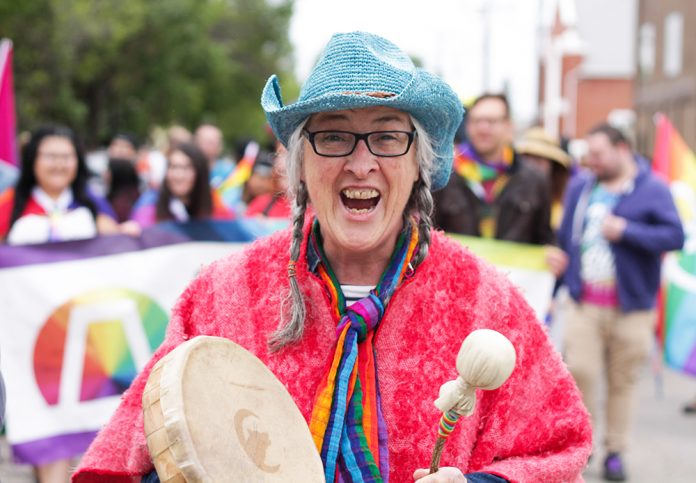
An accomplished Métis filmmaker, cultural worker and educator from Duck Lake is being recognized for her contributions to the provincial art scene.
Marjorie Beaucage was named the 2018 artistic excellence award recipient last weekend at the Saskatchewan Arts Awards.
Beaucage has had work screened everywhere from local bingo halls to the Museum of Modern Art in New York. She works to help affect change in her own life and in the lives of those around her.
With a career of filmmaking spanning over 30 years. Beaucage has embraced a unique approach to documentary and experimental narrative filmmaking including layered images, non-synch sound and shared communal space, a press release said.
Beaucage said she hopes her win helps inspire others to find ways to tell their stories.
“I think the recognition of the way that I work and the way that I tell stories will encourage other people to be true to their own voice,” she said when reached by phone Tuesday.
“That’s my practice. I don’t follow the industry rules or the documentary rules or the feature rules. I just tell our stories from the inside out. I think that moves people. I hope that continues to happen and motivates people to (tell) their own truth.”
When she began making films in 1990, she already had 25 years of experience as a community organizer and educator working in the social and environmental justice spaces. As a two-spirit woman, she has participated as an elder in Prince Albert events such as the Prince Albert Pride Parade and Gender Diversity Awareness Week.
“Through her community-based video storytelling, she has put her camera in the hands of Saskatchewan people, including youth at risk, sex trade workers and the homeless,” the Saskatchewan Arts Board wrote.
“Her work is respectful and honest, and involves mentoring, building relationships and creating connections.”
Beaucage said she started making films when she was looking for a way to express how she was feeling.
“I ran away from home when I was 40 and went to film school,” she said. “I needed something to save my spirit, and film turned out to be exactly what I needed as a form of expression.”
She was a co-founder of the Aboriginal Film and Video Art Alliance and worked as a cultural ambassador to negotiate self-governing partnerships and alliances with the Banff Centre for the Arts, V-Tape, the Canada Council for the Arts and the Saskatchewan Arts Board, which led to new Indigenous arts programs. She also programmed Reel Aboriginal, the first Aboriginal film festival in Toronto at the Harbourfront Centre in 1992. She was honoured with a retrospective showcase at ImagiNATIVE this past October.
Beaucage’s work is continuing to evolve. She finished an artist residency last fall and started experimenting more with the written and spoken word.
‘I was writing my life,” she said, “going through journals.”
Those thoughts are being shared as spoken word, and as video presentations with her words and her imagery.
As someone who spends a lot of her time working with the community, Beaucage thought that maybe she would win for community leadership.
“It was quite amazing to win in (artistic excellence),” she said.
“I wasn’t expecting it. It was awesome.”

